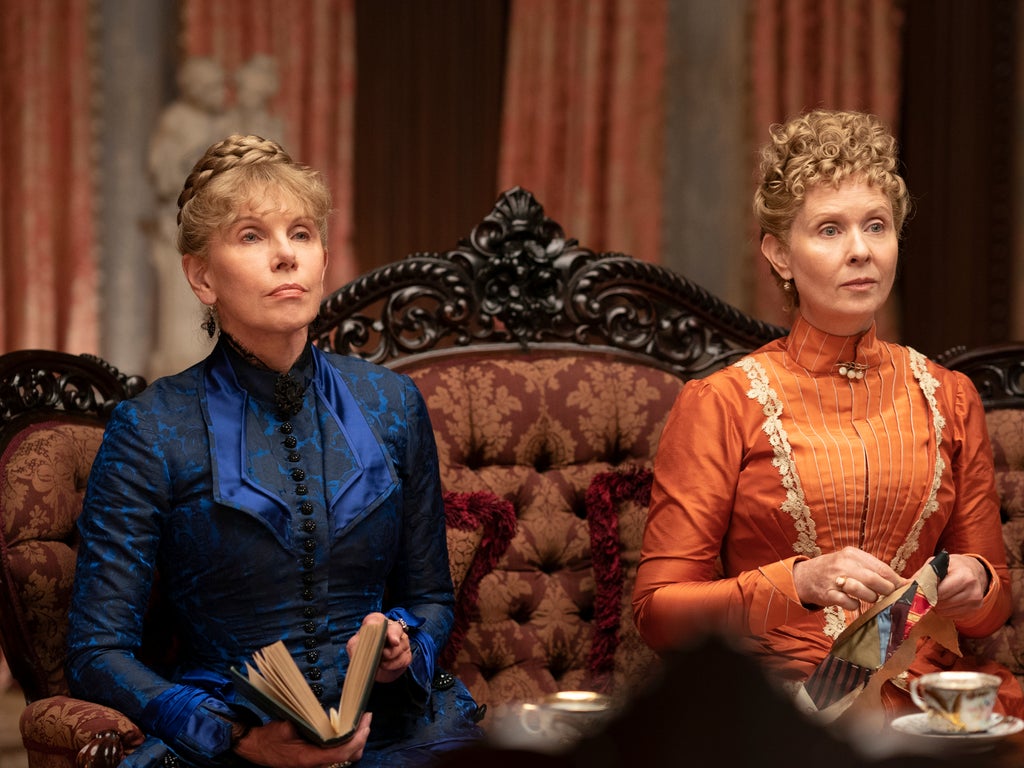
The Gilded Age (HBO Max) has had a surprisingly troubled gestation. You’d have thought Julian Fellowes pitching “American Downton” would be one of the quickest meetings in commissioning history. But a version of this series, set in New York in the late 19th century, has been in the works for nearly a decade. It finally reaches us, after changing network from NBC to HBO, as glossy and bloated as you might fear, with a bumper-length opening episode nearly as long as a feature film.
There is a lot of introduction to do, not least because the setting is less clearly delineated than it was in Downton Abbey. Instead of an English stately home, we are in rapidly changing Manhattan. Most of the action revolves around two houses on Fifth Avenue. In one, two middle-aged spinsters from the old-money Van Ryan family try to manage their decline in the face of the rising new money. There’s Agnes (Christine Baranski), the head of the family, and her sister Ada (Cynthia Nixon), who may be in the city but is decidedly not having any sex. It’s a promising dynamic, between two zinger specialists. In one scene of cloddy exposition, you can practically see Nixon wince as she explains how the family fell on hard times.
They are joined by their niece, Marian Brook (Louisa Jacobson), a strong-headed but naive country girl who quickly works out which way the wind is blowing. On the train up to New York she meets Peggy Scott (Denée Benton), who quickly endears herself to Agnes with her aptitude for writing, becoming a surrogate family member as well as a way for Fellowes to tackle race relations. You slightly get the impression this aspect has been tacked on, and that really Fellowes would prefer to focus on what he does best, which is straight white people getting upset about table settings.
The new generation of arrivistes is epitomised by the Russells, who have built a mansion opposite Agnes and Ada, filled with recently acquired trinkets and treasures. George Russell (Morgan Spector) is a railway tycoon, as aggressive in his business affairs as he is smooth in his personal affairs. He is married to Bertha (Carrie Coon), perhaps Fellowes’s most nakedly social-climbing creation yet. Coon is a gifted actor, but there is only so much she can do with such subtle pronouncements as: “You can laugh but we’ll get there, I just have to manage it carefully.” Key to her plans are her children, Larry (Poldark’s endlessly charming Harry Richardson) and Gladys (Taissa Farmiga). But being accepted by this lot will be more difficult than just throwing a few parties.
The costumes and sets are as lavish as you would expect given The Gilded Age’s provenance. It’s perfectly watchable, and every intention and motive is signposted with Fellowes’s usual clarity. But what sustained Downton for so long was that it balanced its pomp with humour, charm and a razor-sharp understanding of British class differences. The Gilded Age would like you to think it is a missing Henry James novel, but it feels broad-brush by comparison. It has no Maggie Smith, no Jim Carter. The two-house approach means two upstairs/downstairs dynamics to contend with, two sets of servants to learn about as well as their masters. The only one who leaves an impression is the scheming Turner (Kelley Curran). Gilded the age may be, but solid gold this is not.







